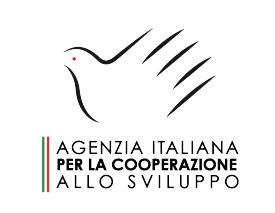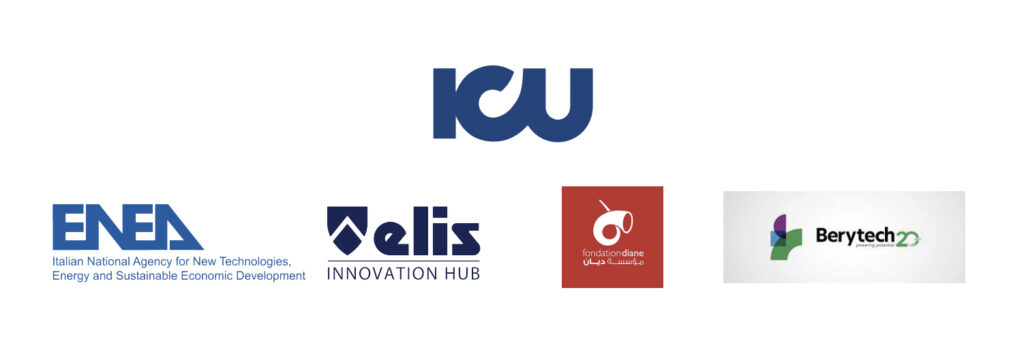
APPLICATION FORM
ABOUT THE PROJECT
INTRODUCTION
Lebanon is currently facing an economic, financial, employment, political, and social crisis, and one of the main causes of this crisis is the energy problem. Mismanagement of energy by the politically influenced public system has led to unsustainable debt levels, resulting in Lebanon’s financial default in 2019. The consequences of this crisis include inflation, rising poverty, high unemployment rates, political deadlock, social protests, and a general lack of trust in the system.
To address this crisis and pave the way for development in Lebanon, it is essential to find a sustainable solution to the energy problem. An initiative has been proposed to encourage an energy transition that can drive economic development, employment inclusion, and environmental sustainability. The key components of this initiative are:
- Promotion of green businesses: Given the unreliable and inefficient centralized energy management, green solutions are considered more promising. The initiative aims to support the development of green businesses by providing better structuring, access to credit, and opportunities for growth.
- Training of necessary skills and professional profiles: Despite high unemployment rates, there is a paradoxical situation where some companies struggle to find suitable employees while training centers produce graduates who cannot find employment. The initiative aims to bridge this gap by providing training programs aligned with the needs of green enterprises.
- Promotion of an enabling regulatory and institutional environment: Policies favoring green investments, such as the regulation of Energy Performance Contracting, are crucial to create a supportive environment. These policies can also help rebuild trust at the national level.
- Capacity Building in energy management, measurement and verification and performance contracting and financing
- Around 50 energy audits to be implemented; Fully Funded by ICU
- Implementation of 10 pilot projects based on the ESCO business model; Partially Funded in grant-form financing
The initiative involves several partners, including the Lead CSO ICU, which has experience in productive activities and energy transition in Lebanon. Other partners include CSO ELIS, ENEA (Italian energy transition reference body), Berytech (organization specializing in business development), Fondation Diane (organization promoting entrepreneurship with a social impact), and the Federation of Chambers of Commerce, Industry, and Agriculture in Lebanon (FCCIAL).
Additionally, the initiative collaborates with other entities at a wider level. For example, Berytech works with public and private financial institutions in Lebanon, while ICU collaborates with the Italian Ministry of the Environment for financial facilities related to green technologies.
The three-year initiative aims to achieve several results, including raising awareness among 300 Lebanese companies about the benefits of green business, training 50 companies in developing their Green Business Plans, supporting the implementation of these plans for 20 companies, assisting three training centers in preparing professional profiles for green enterprises, and stimulating multi-stakeholder dialogue to improve policies related to energy transition, business development, and job placement.
The expected impact of the initiative is a significant contribution to Sustainable Development Goals (SDGs) 7 and 8, focusing on clean and affordable energy and decent work and economic growth, respectively. It is anticipated that the initiative’s results and the strengthened cooperation among local partners will continue to have a positive effect even after the project concludes.
PROJECT PROCESS & TIMELINE
The project follows a competitive process along all its value chain. This beneficiary application form will set the stage for the competitive selection of SMEs. When the SMEs are selected, they will benefit from a high-grade energy audit for their facilities, leading to a set of energy conservation measures, followed by an implementation of most feasible measures under an ESCO contract, that incurs no financial costs on the SME.
| Activity | Expected Period |
| Selection of SMEs | Q3 2023 |
| Energy Audit for SMEs | Q4 2023 |
| Final Selection of 10 Pilot Projects | Q1 2024 |
| ESCO Contract Signature | Q1 2024 |
| ESCO Contract Implementation | Q2 2024 |
THE ENERGY AUDIT
A specialized energy audit company will conduct a detailed investment grade energy audit to the facility following EN, ISO and ASHRAE standards, where the experts will collect energy and operational information about the facility through interviews with facility staff, review of utility and fuel bills, operating data, energy consumption patterns, and other related information. The audit will propose, as results, a detailed energy calculations and financial analysis of proposed energy efficiency measures. Energy consumption is broken out by end-use, identifying areas which present the greatest efficiency opportunities. Utility rates are analyzed to determine if there are rate change opportunities, and key building representatives are interviewed for insights into building operational characteristics, potential problem areas, and to define financial and non-financial goals of the audit.
THE ESCO MODEL
ESCO stands for Energy Service Company, and the ESCO model refers to a business model that focuses on providing energy services to customers. An ESCO is a company that offers a range of energy solutions and services, typically aimed at improving energy efficiency, reducing energy consumption, and implementing renewable energy technologies.
The ESCO model often involves a contractual arrangement between the ESCO and the customer, where the ESCO assumes the responsibility for designing, implementing, and financing energy efficiency projects. These projects could include energy audits, installation of energy-efficient equipment, retrofitting of buildings, and the integration of renewable energy systems.
Under the ESCO model, the customer typically pays for the energy services provided by the ESCO through a share or guarantee of the energy savings achieved from the implemented projects. This approach is commonly known as performance contracting or energy savings performance contracting (ESPC). The ESCO takes on the financial risk by investing upfront in the energy efficiency measures, and the customer benefits from reduced energy costs and improved sustainability.
ESCOs often have expertise in energy management, engineering, and project finance. They assess the energy needs of the customer, identify potential energy-saving opportunities, propose solutions, and then implement and maintain the energy-efficient systems. The ESCO model has been applied in various sectors, including commercial buildings, industrial facilities, hospitals, schools, and municipalities.
By leveraging the ESCO model, customers can reduce their energy consumption, lower their environmental impact, and achieve cost savings without requiring large upfront investments. ESCOs play a crucial role in promoting energy efficiency and sustainability by facilitating the adoption of clean energy technologies and practices.
FUNDED BY

PARTNERS
